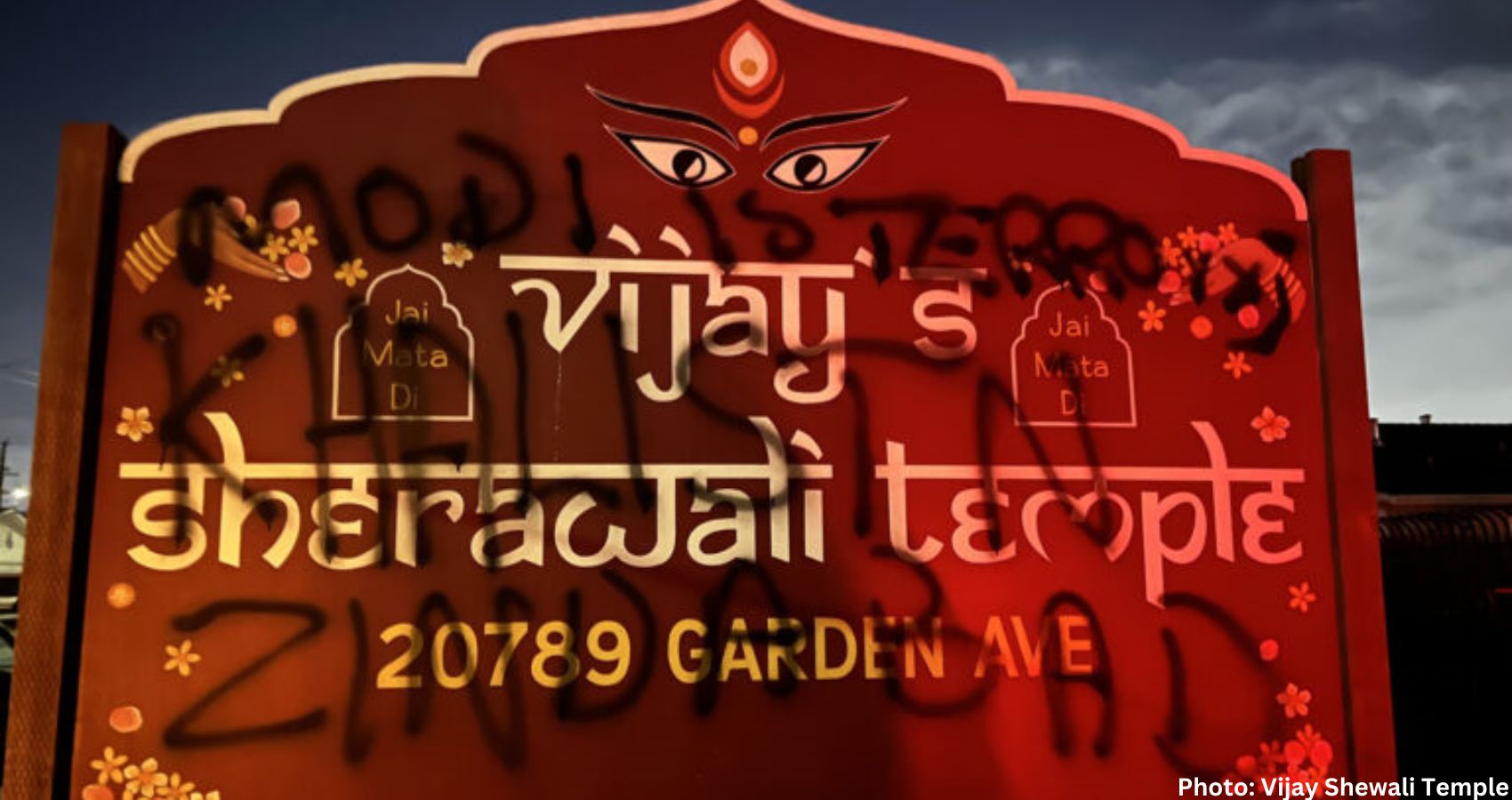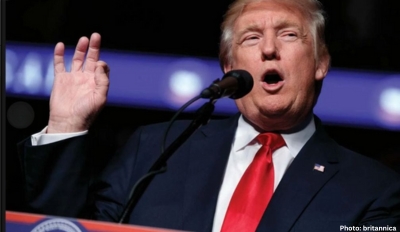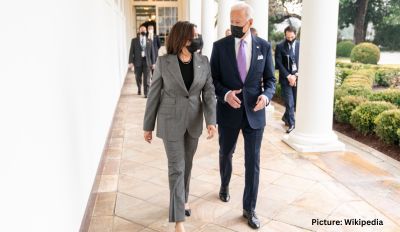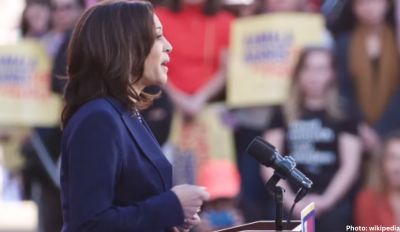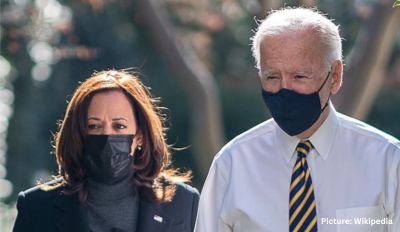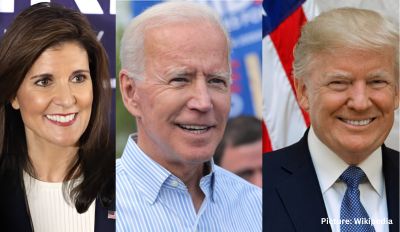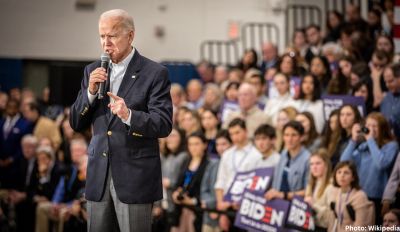In a letter sent to the U.S. Department of Justice on Friday (March 29), five members of Congress of Indian and Hindu heritage requested a briefing on the status of investigations into recent vandalism incidents at Hindu temples across the country.
Members of the “Samosa Caucus” — an informal term for the group, coined by one of its founders, U.S. Rep. Raja Krishnamoorthi of Illinois — also urged Assistant Attorney General Kristen Clarke to outline the the DOJ Civil Rights Division’s “broader strategy against hate crimes targeting Hindus in the United States.”
Attacks from New York to California have “increased collective anxiety among Hindu Americans,” the letter indicated, adding that “It takes relatively few coordinated acts of hate to create fear within a community that has often been marginalized or neglected.”
The letter was signed by Krishnamoorthi and U.S. Reps. Ro Khanna and Ami Bera of California, Pramila Jayapal of Washington and Shri Thanedar of Michigan.
The lawmakers requested that the department provide the briefing no later than April 18. The DOJ said it has acknowledged receipt of the letter, but declined a request for comment.
According to the FBI’s most recently published hate-crime report, there were 37 instances of anti-Hindu hate crimes in 2021 and 2022, with at least three known attacks on Hindu mandirs, or temples, in California since December of 2023. The temples were defaced with graffitied slogans protesting India’s Prime Minister Narendra Modi and supporting the Khalistan movement, a Sikh-led separatist demand for a sovereign state in India’s Punjab region.
In March of 2023, the Indian Consulate of San Francisco was attacked by a group of protesters who stormed the building and installed small Khalistani flags inside. Another mob attempted to set the consulate building afire in July of that year.
These instances followed the vandalism and destruction of a Mahatma Gandhi statue in front of a mandir in New York’s Queens borough in 2021, also defaced with anti-Modi and pro-Khalistan sentiments.
“Such acts of hate shake the foundation of our collective values of tolerance, respect, and freedom of religion,” said Thanedar in a statement to RNS. “I urge a swift and thorough response from the Department of Justice to not only address these specific incidents but also to reinforce our nation’s commitment to safeguarding the rights and security of every religious group.”
Hindu advocates say the trend points to a lack of an adequate response from law enforcement, which they blame on anti-Hindu bias. Though the FBI in all instances indicated it would investigate the vandalism as hate crimes, the agency has not commented publicly on the status of these efforts.
The letter from the members of Congress said Hindu communities “remain concerned about law enforcement coordination regarding these bias-motivated crimes, and they are left wondering if there is appropriate federal oversight to ensure equal protection under the law.”
Others in the Indian American community took issue with the letter’s message. Sangay Mishra, a prominent scholar of the Indian American diaspora, took to X to explain his view that the instances of vandalism and the “alleged involvement of Khalistan supporters” reflect more complex political dynamics than the umbrella term of “hate crime” covers.
“It is hard for me to ignore the fact that diaspora is going through a moment of extreme polarization,” tweeted Mishra. “It is unfortunate that these members of Congress are treating these incidents only as a law and order issue and framing them as incidents of hate crime.
“As elected leaders from the community, you can play an important role in building bridges and starting constructive conversations,” he said in a message directed toward Jayapal and Khanna.
Khanna has himself previously criticized Hindus who “cry Hinduphobia,” arguing that he had never felt Hinduphobia “at any single point” in his “97 percent white and Christian” hometown.
Yet some Hindu leaders, such as Pushpita Prasad of the Coalition of Hindus of North America, consider Hinduphobia to be the “root cause” of pro-Khalistani vandalism and have made the attacks part of their yearslong effort to have Hinduphobia recognized at the federal level. They point to a 2022 study published by Rutgers University’s Network Contagion Lab detailing a “widespread, insidious yet underreported” phenomenon of Hinduphobia both online and in person.
“Freedom of religion means little when sacred spaces that are meant to be an oasis of peace and calm are vandalized with no consequences,” said Prasad, whose organization has campaigned in the California area to ensure lawmakers understand the gravity of the “ongoing Khalistani violence.”
“We are glad to see some much overdue attention to the issue of repeated and frighteningly frequent attacks on Hindu temples,” said Prasad. ”It’s been shocking to see how many had no idea what’s going on.”
The Hindu American Foundation, the nation’s largest advocacy organization for Hindu Americans, has similarly lobbied local law enforcement, the FBI and the DOJ, according to community outreach director Ramya Ramakrishnan, urging more awareness of “Khalistan extremism and lawlessness that, over the past couple of years, has grown increasingly violent.”
“We’ve been frustrated by the lack of response — at best, diminishing the anti-Hindu nature of these attacks, and at worst, giving space to outright gaslighting by Khalistani groups who have falsely blamed the victims,” said Ramakrishnan. (https://religionnews.com/2024/04/03/indian-origin-lawmakers-urge-doj-to-address-alarming-rise-of-hindu-temple-vandalism/?utm_source=RNS+Updates&utm_campaign=748e896a84-EMAIL_CAMPAIGN_2024_04_04_01_36&utm_medium=email&utm_term=0_c5356cb657-748e896a84-%5BLIST_EMAIL_ID%5D)

